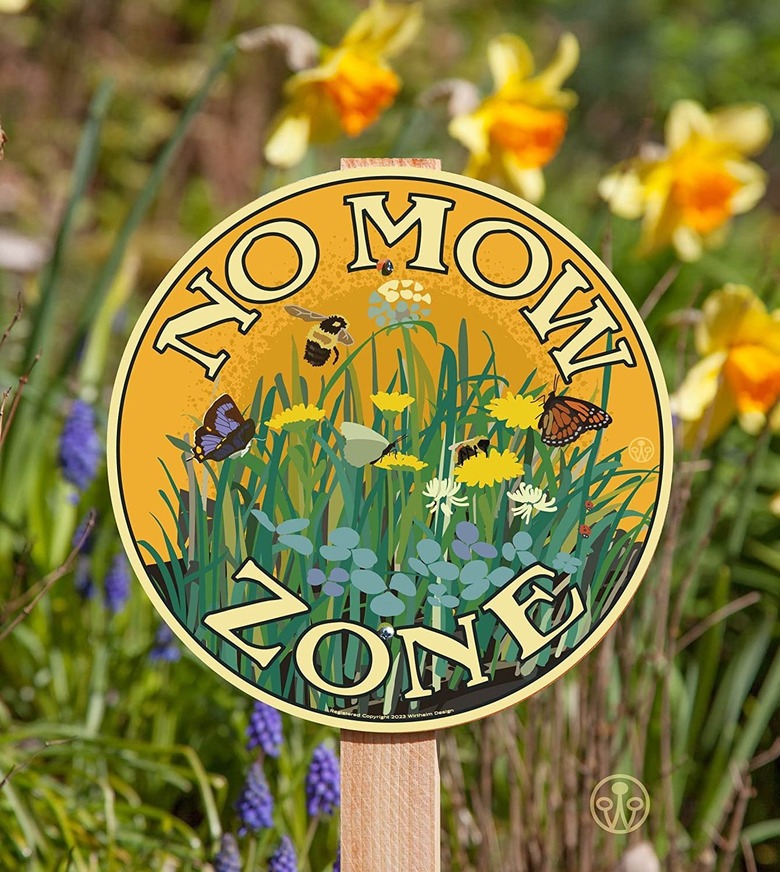What Is 'No Mow May,' And Why Is It Controversial?
We may receive a commission on purchases made from links.
With spring finally in full swing, you may be gearing up to get outside and start manicuring your lawn, ensuring yours is the nicest yard on the block. However, in recent years some people have been forgoing their mowers for an event known as "No Mow May."
What Is No Mow May?
What Is No Mow May?
The concept is simple: Let your grass grow out during the month of May as a way to help out the ecosystem. Created by a British environmental group called Plantlife, the concept first took root in the U.K. in 2019 and quickly spread to the U.S.
Researchers at the University of Minnesota found that not mowing your grass encourages flowers to bloom, providing nectar to beneficial pollinators like bees, birds, and butterflies. Additionally, they found that grass grows excessively twice a year, including at the start of summer, providing nutrients that help it withstand drought, high temperatures, and heat.
"If you create the habitat, they'll come," Matthew Shepherd, director of outreach and education for the environmental non-profit Xerces Society, told Fox Weather.
Does No Mow May Work?
Does No Mow May Work?
While some neighbors may not like the concept of a shaggy lawn next to theirs, research conducted by Lawrence University found that up to five times the number of bees and three times as many bee species were found in lawns that had remained unmowed. Believe it or not, that's a good thing.
"More than 85% of all flowering plants are pollinated by bees," Dr. Susannah Lerman, a research ecologist for the USDA Forest Service, also told Fox Weather. "It's estimated something like a $56 billion service that bees provide in terms of pollinating our crops. If we want to eat, we need bees."
The rise of No Mow May comes at a time when even mowing has become a political point, with lawmakers passing regulations that encourage sustainable landscaping. Per KCAL News, California is banning the sale of gas-powered mowers and leaf blowers starting in 2024, while other large cities like New York City and Boston are considering similar bans in the future.
This event could also be tied to a rise in native gardening, in which people focus on growing native plants to promote a more balanced ecosystem. Native gardening can also help you cut down on the use of water, fertilizer, and pesticides for your yard.
Where Can I Get a No Mow May Sign for My Yard?
Where Can I Get a No Mow May Sign for My Yard?
If you're interested in participating and would like to have a No Mow May sign for your yard proclaiming your involvement (or to show your neighbors you haven't just been getting lazy), you can check out the Xerces Society's website. It includes full-color signage to print out — they even offer a kid's version! You can also find a variety of signs on Amazon.
